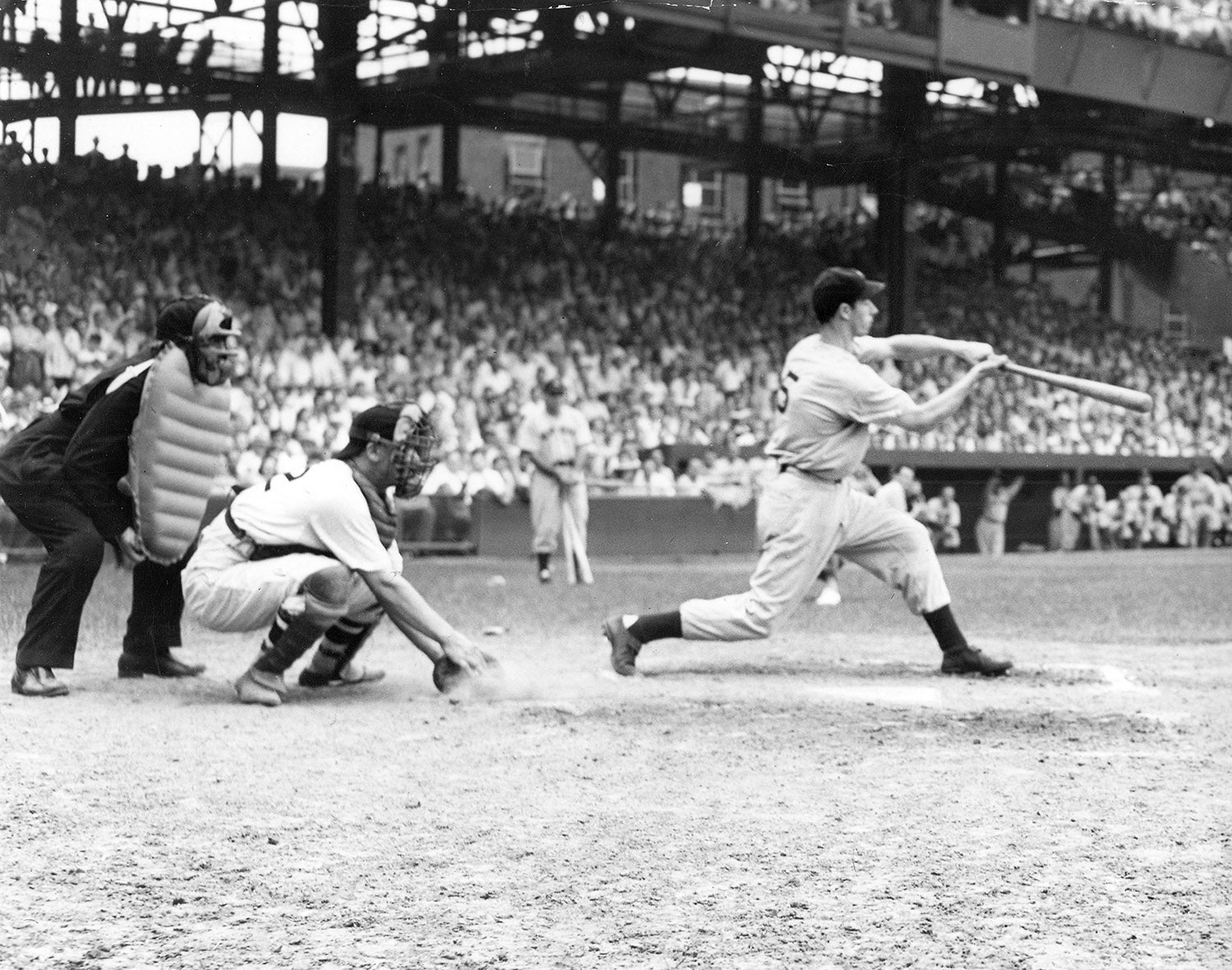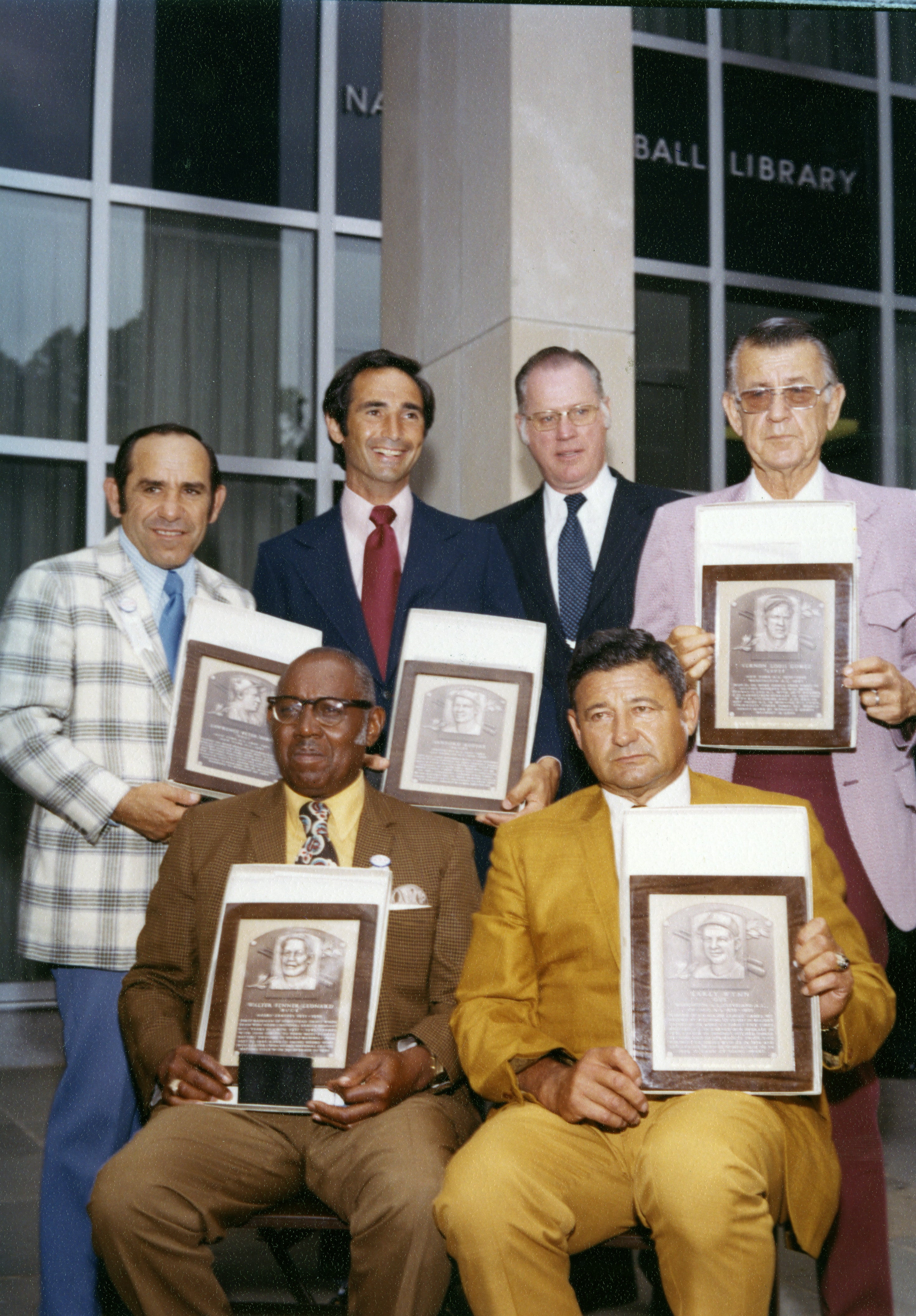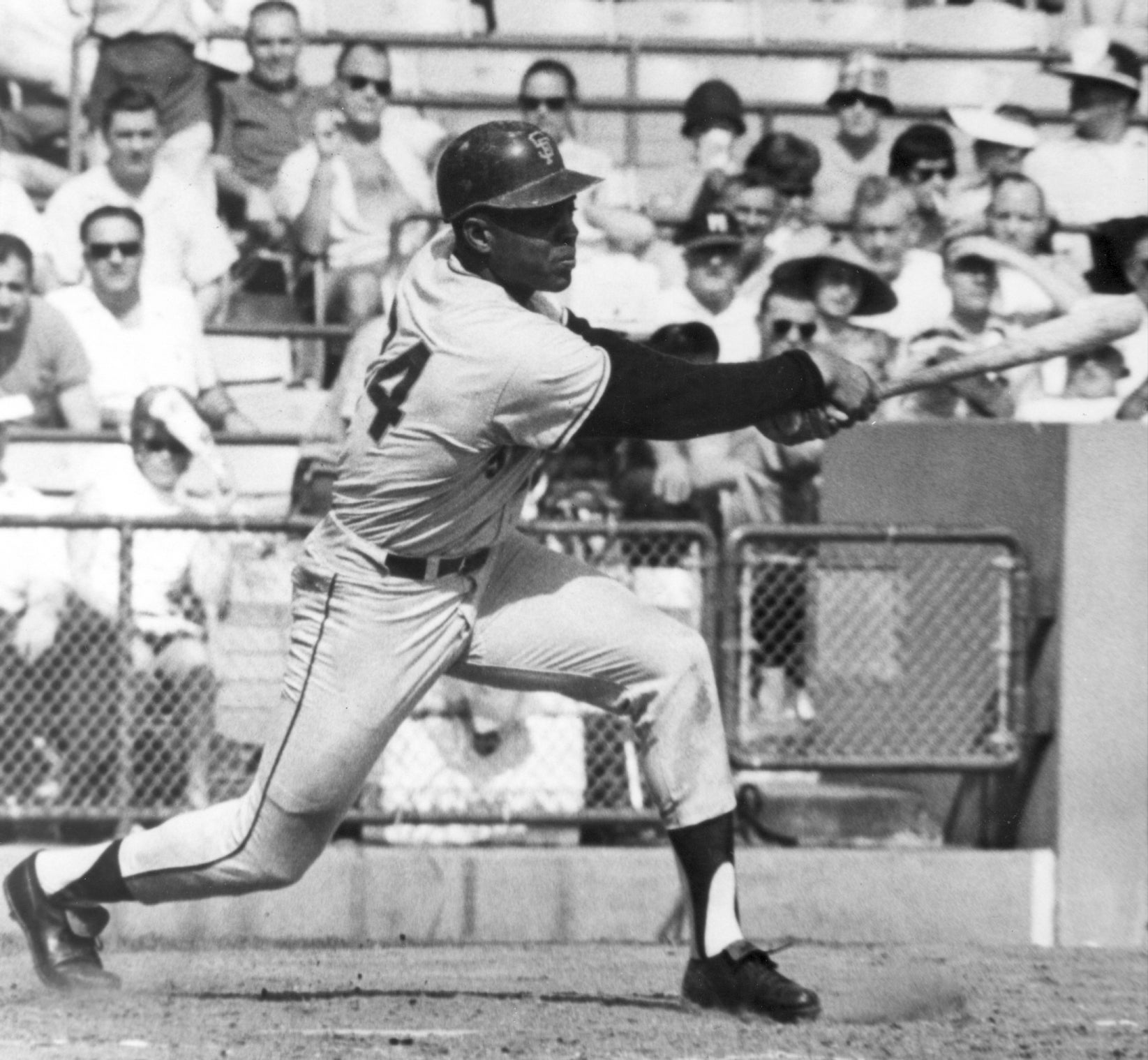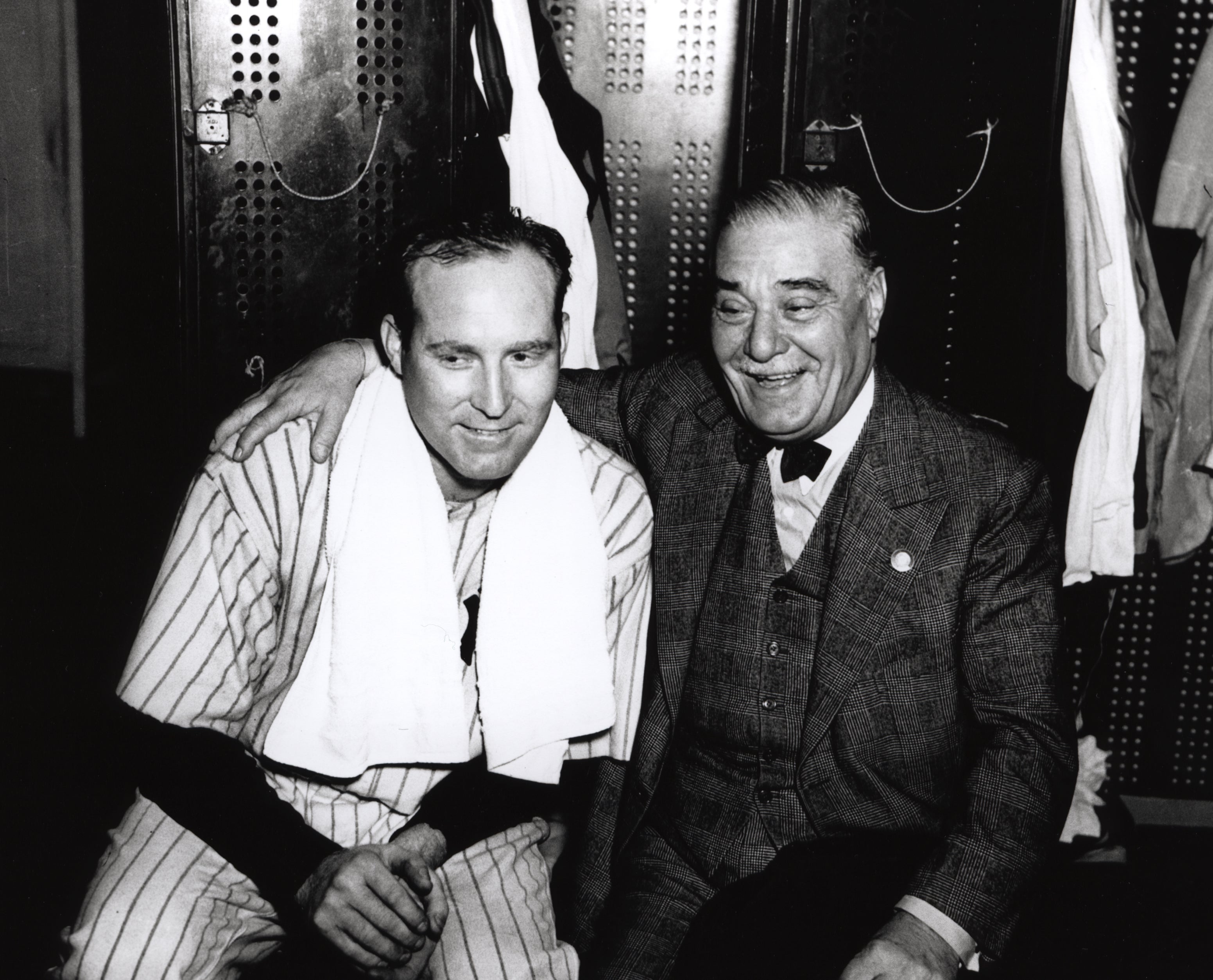- Home
- Our Stories
- Berra delivers first pinch-hit home run in World Series history
Berra delivers first pinch-hit home run in World Series history
He hadn’t yet appeared in even 100 big league games, so Yogi Berra was far from a household name when he stepped to the plate as a pinch hitter in Game 3 of the 1947 World Series.
But “Larry Berra” – as many newspapers identified him – was about to begin his ascent into the American sporting consciousness by making history.
Yankees Gear
Represent the all-time greats and know your purchase plays a part in preserving baseball history.
On Oct. 2, 1947, Berra hit the first pinch-hit home run in World Series play when he took Brooklyn pitcher Ralph Branca deep with one out in the seventh inning. Two-hundred fifty-two World Series games had been played to that point in history – and not one had featured a home run from a pinch-hitter.
With the Yankees trailing 9-7 in the seventh inning, manager Bucky Harris sent Berra to the plate to hit for Sherm Lollar, who had started the game behind the plate for New York. The 23-year-old Lollar would go on to have a stellar big league career, earning nine All-Star Game selections and three Gold Glove Awards. But Lollar had appeared in just 11 games for the Yankees that season as Aaron Robinson received the most playing time of any Yankees catcher.
In his first full season in the big leagues, Berra hit .280 with 11 home runs and 54 RBI in 51 games behind the plate and 24 more in the outfield. He appeared 11 times as a pinch-hitter, hitting one home run that came off the White Sox’s Earl Caldwell on July 27.
But in front of 33,098 fans at Ebbets Field, Berra drove a Branca offering over the scoreboard clock in right-center field to cut the Yankees’ deficit to one run. New York would get no closer, as Hugh Casey relieved Branca following Berra’s home run and held the Yankees to just one hit and one walk over the final 2.2 innings.
He was awarded the victory in Brooklyn’s 9-8 win which left the series at 2-games-to-1 in favor of the Yankees.
Berra, who remained in the game at catcher following his pinch-hitting appearance, grounded out to Dodgers second baseman Eddie Stanky to end the game.
The total game time of three hours and five minutes was the longest World Series game by time played to that date.
In a quiet Yankees clubhouse following the game, a frustrated Berra took no solace from his new place in history.
“They should be ashamed of themselves for letting us (come back),” Berra told the Associated Press after the Yankees rallied from deficits of 6-0 and 9-4.
The Dodgers would win Game 4 the following day to tie the series at two games apiece, with more history made at Ebbets Field. Yankees starter Bill Bevens was one out away from a no-hitter when Cookie Lavagetto – another pinch-hitter – doubled home Al Gionfriddo and Eddie Miksis to turn a 2-1 Yankees lead (Brooklyn had scored a run in the fifth inning without the benefit of a hit) into a 3-2 walk-off victory for Brooklyn.
New York would eventually emerge victorious in seven games, with reliever Joe Page pitching five innings of one-hit ball to end Game 7 and rescue an exhausted Yankees pitching staff.
Berra finished the World Series with three hits in 19 at-bats for a .158 batting average. But of more importance, it marked the first of 10 times that Berra would play on a World Series winner. His 75 career games and 71 total hits remain World Series records.
The second pinch-hit home run in Series history would also come from a Yankees batter against a Dodgers pitcher when Johnny Mize homered off of Preacher Roe five years and one day later on Oct. 3, 1952.
Craig Muder is the director of communications for the National Baseball Hall of Fame and Museum
Related Stories

Joe DiMaggio makes his big league debut, recording three hits in the Yankees’ win

Berra, Koufax inducted amid star-studded Class of 1972

Mays’ pinch-hit homer leads National League to victory in 1956 All-Star Game

Yankees become World Series kings with win in 1938 Fall Classic

Joe DiMaggio makes his big league debut, recording three hits in the Yankees’ win

Berra, Koufax inducted amid star-studded Class of 1972

Mays’ pinch-hit homer leads National League to victory in 1956 All-Star Game




